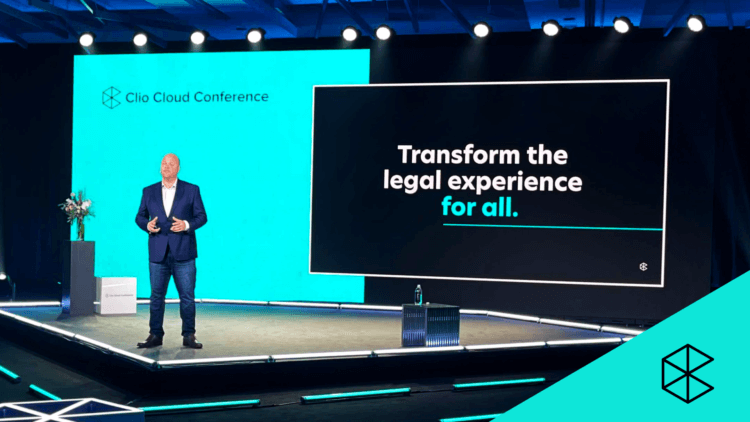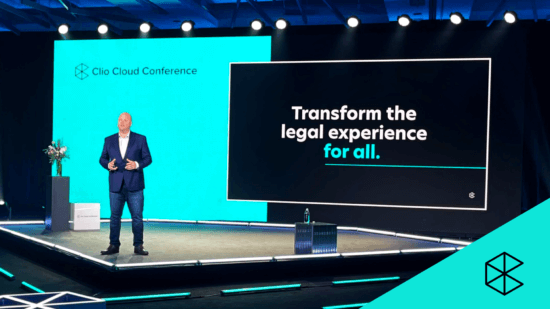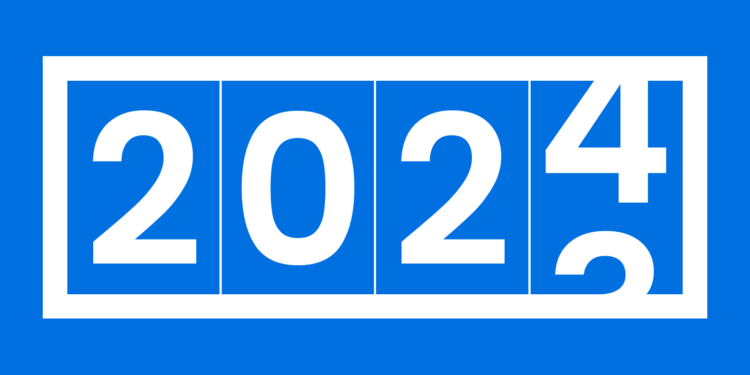The Clio Cloud Conference 2021 marks the second fully virtual (but equally exciting) conference Clio is hosting. With 4,700+ attendees from over 40 countries joining remotely, the Clio Cloud Conference remains the most widely-attended event in legal. It’s where legal professionals from all over the world come to meet new like-minded people, make lasting new connections, and listen to the biggest and brightest in the industry share their insights and expertise.
This year, Clio CEO and Co-Founder Jack Newton delivered an inspiring keynote covering Clio’s vision for the future of legal services. Watch the keynote recording below, or read this blog for highlights.
This riveting keynote also introduced industry-disruptive findings from the newly released 2021 Legal Trends Report, and unveiled impressive new features and additions to Clio’s product offerings.
The Reisman Awards

Every year, we’re proud to honor our customers and the amazing work they do in the legal community. Jack was thrilled to announce this year’s Reisman Award winners in his opening remarks. Since the awards’ inception five years ago, it has proven to be more arduous each year to select the winners. We thank the 300+ applicants, all of which are impressive and inspiring.
And now, a big virtual round of applause for this year’s winners—firms that found opportunities to transform the legal experience for all by creating new and dynamic ways for firms and clients to work together:
-
- Community Champion: Elder Law & Disability Rights Center.
- Legal Innovation: Ayuda Legal Puerto Rico.
- Best Growth Story: Stotler Hayes.
- Legal impact: Pinder Plotkin.
- Excellence in Client Service: rb LEGAL.
- Best New Law Firm: Big Fire Law & Policy Group.
Learn more about winners of The Reisman Awards.
Clio’s continuing efforts to improving access to justice
Without a doubt, the last year has exposed many issues that have plagued society for centuries. We saw the world raise important discussions on the systemic racism that is pervasive in our society, and it’s clear that the legal industry has an instrumental role to play in affecting real, lasting change.
Now, as always, increased access to justice in our societies is absolutely crucial. Many of our most vulnerable populations—those with important and pressing legal issues—don’t have access to legal services, or true access to justice. We need to create a more equitable and accessible justice system for all.
In his keynote address, Jack mentioned some of the ways Clio is contributing to improving access to justice for all—but our work doesn’t stop here. These are some of our initiatives, but there’s always more to be done:
- We’ve donated over $40 million to date through the community: We’ve done this through various programs like the Clio academic access program and the COVID-19 Legal Relief Initiative.
- Clio also partnered with the New York State Bar Association and Paladin to help those unsuccessful at filing for unemployment claims, and matching them with pro bono attorneys free of charge.
You may like these posts
Clio became the first legal tech unicorn globally valued at over $1B
You may have already heard the news from earlier this year—Jack highlighted that Clio announced a new valuation of US $1.6B after raising US$110M in its Series E. The funding round was led by funds and accounts advised by T. Rowe Price Associates, Inc. and also included OMERS Growth Equity. This investment signals a historic moment in the growth of legal technology, with Clio becoming the first legal practice management unicorn globally.
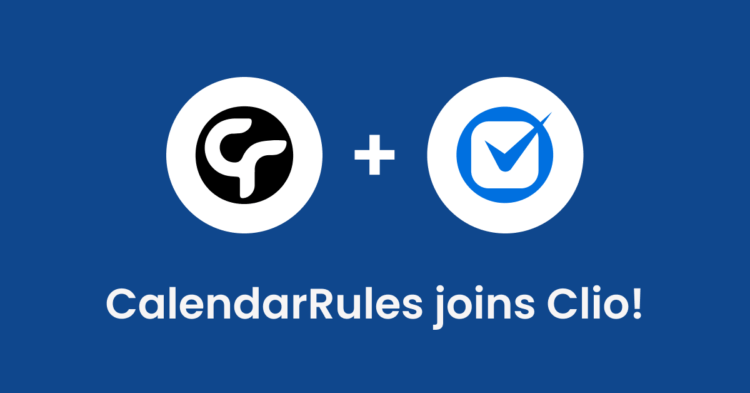
In addition, Jack shared that this year, we were thrilled to acquire CalendarRules and Lawyaw (now known as Clio Draft). CalendarRules is a company that provides automated court rules-based calendaring for law firms and powers the Court Rules feature in Clio. With Clio’s focus on helping lawyers better manage their busy schedules, the acquisition was a natural next step in the companies’ long-standing partnership.
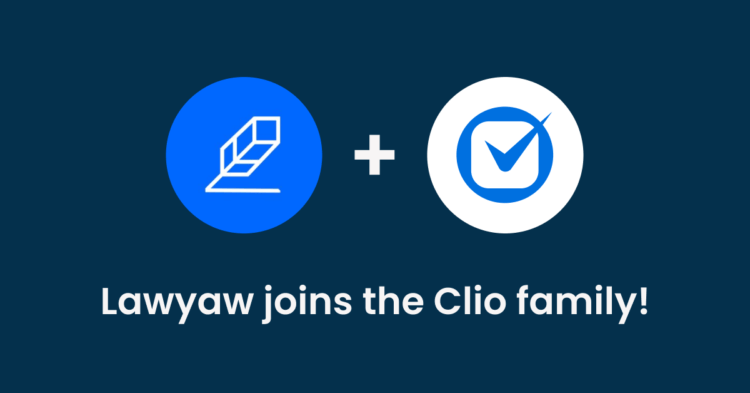
Lawyaw is a San Francisco-based company developing innovative digital workflows for legal documents. As part of the acquisition, Lawyaw’s team, along with Tucker Cottingham, CEO and Co-founder of Lawyaw, will join Clio to continue their work connecting and streamlining information gathering, automated document generation, and e-signatures for legal professionals.
With Clio’s focus on simplifying and automating tedious and critical tasks that take legal professionals away from client-centered legal experiences, the acquisition was a natural next step in the companies’ long-standing partnership.
Read more about CalendarRules and Lawyaw joining the Clio family.
A year of rapid change and uncertainty
In his keynote, Jack acknowledged that this last year has brought about greater uncertainty during a period of rapid change. He invited us to recognize that change happens in all shapes and sizes. Jack compared this to evolution—when we think of evolution, we tend to think of this occurrence as a gradual, incremental, and linear process. In reality, evolution happens abruptly and in response to significant changes in the environment.
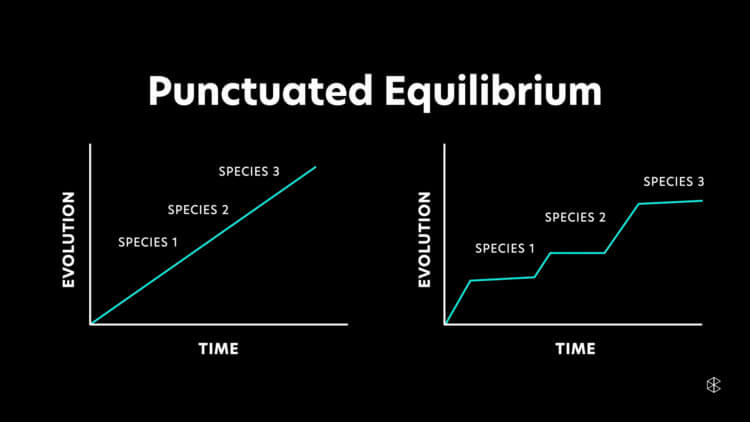
Jack demonstrated that evolutionary scientist Steven J. Gold and Niles Eldredge define this phenomenon as a punctuated equilibrium. With each punctuated shift between long periods of stability, we see rapid species change which are captured in fossil data, through which they happen over time.
For Clio, and for technology and legal, we’ve seen this punctuated equilibrium—the adoption curve suddenly took off to another level in a matter of months. Technologies that were once new have become commonplace—for example, cloud and video conference technology.
Insights-fuelled growth: Highlights from the 2021 Legal Trends Report

As the legal industry’s most in-depth analysis into the state of the legal practice, the 2021 Legal Trends Report brings together critical insights about how legal services have adapted to the challenging circumstances of the past two years and what forces will shape these services in the future. Law firms can use the findings from the report to learn how to thrive in this new hybrid legal environment. Jack highlighted the following key findings from the 2021 Legal Trends Report:
- 85% of legal professionals were using some form of software to manage their firms. In 2020, we experienced adoption never seen before in legal in response to the pandemic.
- 83% of legal professionals were meeting clients virtually through platforms like Zoom. Although video conferencing software has been around for a decade, it only became commonplace last year.
- 79% of legal professionals were storing firm data in the cloud. When firms had to turn to remote last year, we saw firms turning to solutions like Clio at an unprecedented pace. This has formed the foundation for firms to create more flexible work arrangements that aren’t tied to the idea of a centralized, physical office space.
- Getting paid has been a constant source of friction for clients and law firms: Many law firms lagged in adopting simple online payment solutions, until last year when we saw a massive spike where 73% of legal professionals accepted online payments. Firms also started more flexible payment options which would make their services more accessible.
- 62% of legal professionals supported electronic documents and e-signatures. These legal professionals allow clients to retrieve and sign docs from anywhere, making their legal services more convenient and less stressful than their peers who don’t.
Download the 2021 Legal Trends Report.
Envisioning the future: Cloud-based and client-centered
Jack pointed out that we’ve seen a shift in legal—regarding the arrival of the cloud era. For the first time, law firms have embraced technology that would allow them to work securely from everywhere. More importantly, law firms have embraced technology and used it to connect with clients wherever they are. This capability alone will have a dramatic impact on the delivery of legal services and the opportunity for law firms.
In this section of his keynote, Jack compared the dramatic shift in customer expectations for client communications in recent years. Because of this, law firms need to adapt to different communication formats:
- In 2018, 23% of consumers were open to the idea of working remotely with a lawyer.
- In 2021, 79% of consumers look for remote options when hiring a lawyer.
- 67% of consumers look for lawyers offering both remote and in-person options.
Jack also invited us to consider the following:
- Appetite for video conferencing today is undeniable. 58% of clients want the option to connect with their lawyer over solutions like Zoom. Video conferencing is a critical option for clients.
- 61% of clients want to communicate about key decisions over video conference. There was also an increase in expectations over client portals such as messaging and mobile apps.
- Receiving status updates: Clients want easier, less involved forms of communication. Phones topped the list, but emails, client portal, video calls and text messages rank high on the list.
- Viewing and sharing documents. Clients are looking for a range of options, including email, client portals, and online file sharing services. Half of clients want the option to review docs over video conferencing.
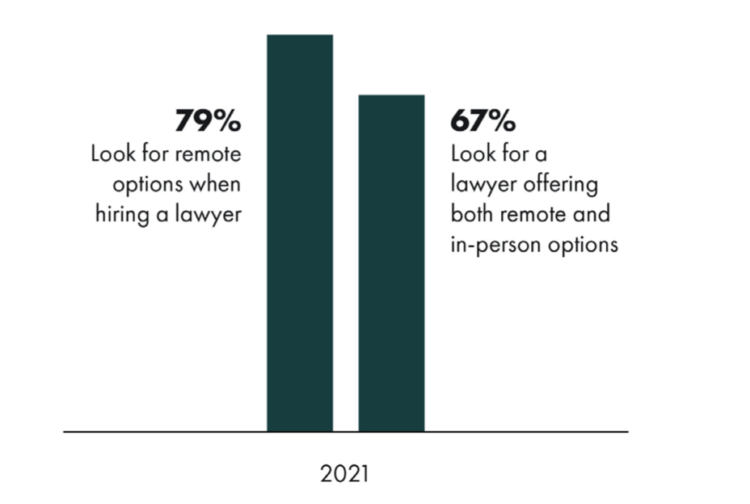
The opportunity ahead of us
Jack invited us to consider the concept of a legal desert—where a community of few lawyers are available to provide legal services. This legal desert is what the state of legal services is moving towards. Jack shared that in a recent ABA survey, there are 54 counties that don’t have a single lawyer, and 182 counties with just one or two lawyers. Especially in rural communities, many people are disproportionately underserved and many don’t receive support for their legal problems at all. This isn’t exclusively a rural problem either—77% of legal problems in the world don’t receive any legal support.
The opportunity for law firms: The latent legal market
Jack highlighted that the demand for legal services = the latent legal market, and this is a huge opportunity for law firms. Firms need to focus on bridging that gap, whether it means making it easy to connect with someone in the next county, or someone who is very busy. Law firms need to focus more on clients. Consider the following:
- Law firms using Clio continue to outperform others.
- 60% of law firms don’t respond to email and 27% are unreachable by phone.
- Growing firms have continued to adopt client-facing technologies. Growing firms are 41% more likely to use client portals.
- Growing firms are 46% more likely to ust client intake and CRM solutions.
- Online payments is another key area where we see 37% advantage among growing firms.
- All firms are seeing the benefits of online payments, which has become the norm.
Automation and augmentation will help you run a client-centered law firm
Another key aspect of change that law firms need to implement is automating the day-to-day tasks of their businesses with technology. Jack emphasizes that legal professionals can be in two places at once and they can do multiple things at once—with the help of the right legal technology. Client portals and online booking allow clients to access information instantly and pick a schedule that works for them. Legal professionals like yourself can be there for your clients immediately from wherever you are with video conferencing.
Meeting clients where they’re at shouldn’t feel like you’re navigating a maze. It also shouldn’t feel like they’re coming at a cost to your bottom line or mental health.

Clio Ventures
Jack was also delighted to announce the launch of Clio Ventures—making direct equity investments in promising early stage companies and diverse founders who are advancing legaltech and creating innovative solutions that help transform the legal experience for all.
Building the first legal operating system
At Clio, we’re hard at work building our own set of products that enable legal professionals to be cloud-based and client-centered. Jack emphasized: “We’re dedicated to building the first and most comprehensive legal operating system on the market that will improve every aspect of the legal journey, and transform the legal experience for all.” Jack continued to explain that at Clio, we will expand the depth and breadth of our services to meet the needs of all parties involved in all stages of the legal journey, to transform the legal experience for all.
Jack also shared that at Clio, we’ll realize this through the aggregation of marginal gains, by exploring the barriers getting in the way of the legal experience. We’ll look at the changes we can make on day-to-day firm operations to start to create the large-scale change we want to see.
In addition, Jack highlighted that Clio will:
- Centralize and simplify business operations for law firms.
- Create new solutions for law firms to better serve their clients.
- Make it easier for lawyers and clients to connect and collaborate no matter where they are.
- Enable the legal industry to make data-driven decisions.
- Break down barriers to legal services for consumers.
- Create a more inclusive legal community and a more equitable legal system.
Jack disclosed that for now, we’ll help the most compelling companies build on the Clio platform. As the program unfolds, we’ll invest in a variety of companies that align with our vision of creating the connective tissue our industry needs for the legal operating system.
What’s New in Clio?
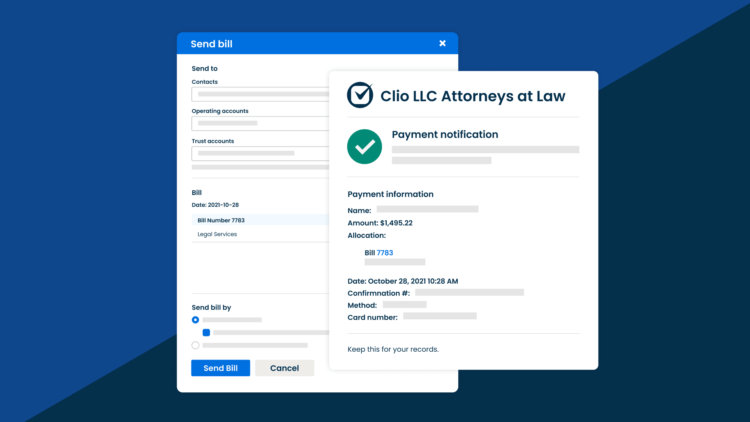
Clio Payments: A new and better way to get paid
The 2020 Legal Trends Report found that 72% of consumers would prefer to pay their legal fees via a payments plan. The 2021 Legal Trends Report found that 81% of consumers say a firm’s ability to offer payment plans influences their hireability.
With Clio’s all-new payments suite built-into Clio Manage, you can make it easy for clients to pay their bills online with debit, credit, or eCheck. Send trust payment requests and maintain evergreen retainers—all while maintaining compliance with trust accounting rules.
Learn more about Clio Payments and read Jack’s letter about the all-new Clio Payments.
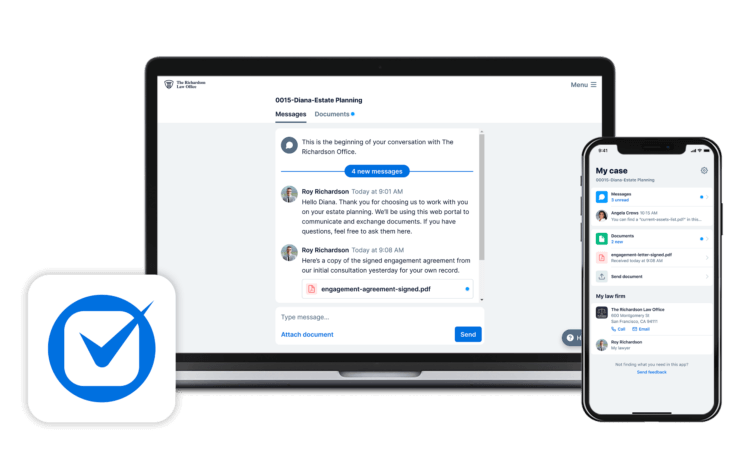
Clio for Clients
Make it easy for your clients to communicate and share information with you no matter where they are. With Clio for Clients, your clients can securely receive updates, share documents, and access their case information from their desktop or mobile phone. The best part? Everything is automatically stored to the appropriate matter in Clio Manage for you.
Learn more about Clio for Clients.
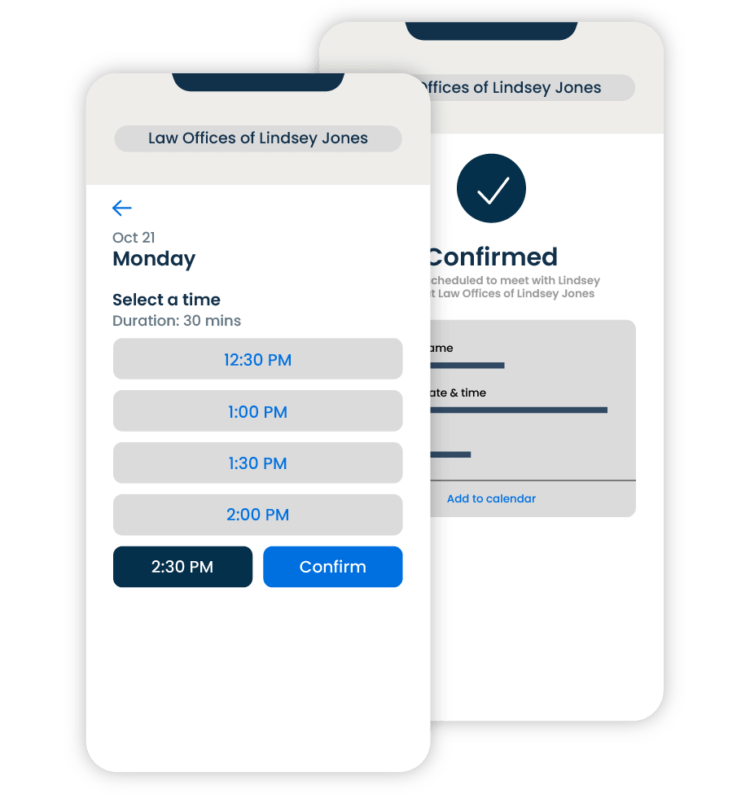
Clio Scheduler: Advanced booking settings
New Clio Scheduler advanced booking settings–including minimum advanced booking notice and buffer time between meetings–gives you more control over your calendar. Forget last minute surprises, so you can show up prepared for every consultation, and find the right balance in your daily schedule.
Learn more about advanced booking settings with Clio Scheduler.
Text notifications (and reminders—coming soon)
Use text notifications and reminders to avoid the costly no-shows and unnecessary administrative overhead that comes with organizing client meetings. Clients can confirm if they plan to attend a meeting so you aren’t left guessing, and automated text reminders save you from having to call or email.
Learn more about text notifications in Clio Manage.
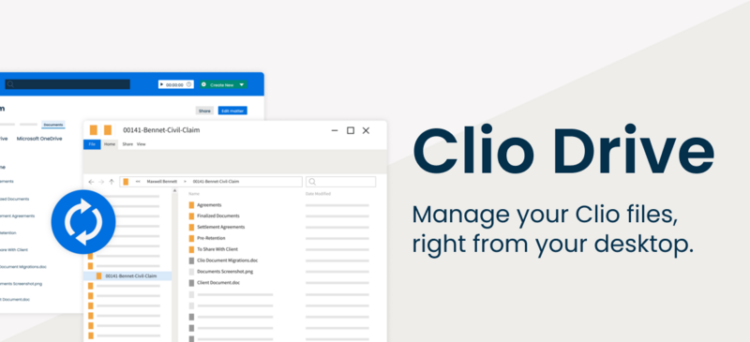
Clio Drive
Access, edit, and collaborate on files from the familiarity of your desktop. Clio Drive syncs your documents between a virtual drive on your desktop and Clio Manage, making it easier to find and work with your files while keeping everything and everyone in sync.
Clio Drive is available now for Windows. Mac coming soon.
Learn more about Clio Drive.
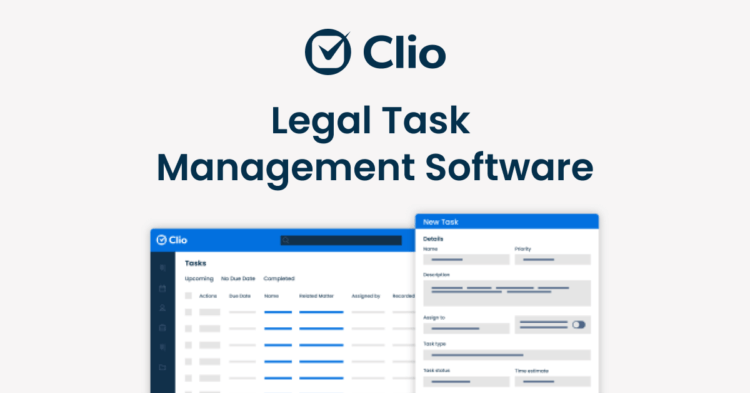
New task enhancements
There’s a lot to love about the most recent refresh to Clio Tasks. This release aligns the look of task lists page with the rest of Clio Manage and introduces new functionality. Easily assign task lists right inside of a matter, duplicate task lists in seconds and much more.
Learn more about the redesigned task experience.
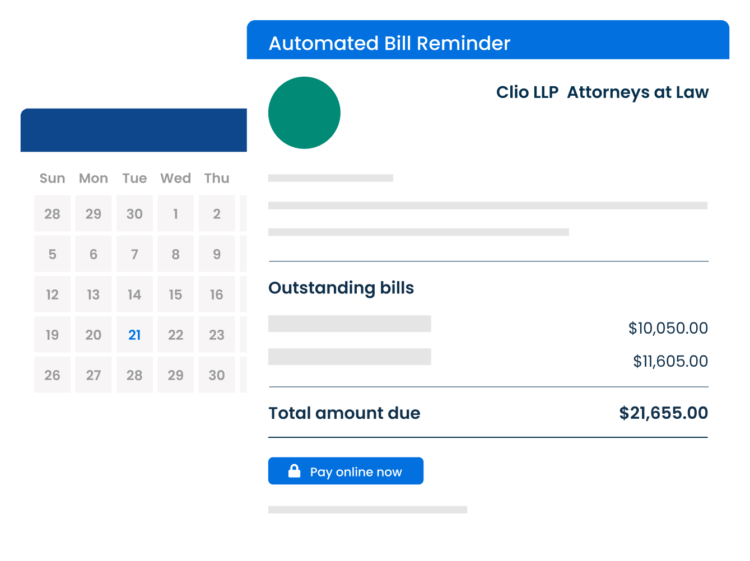
Billing enhancements
A number of new billing features have been added to Clio including Automated Billing Reminders, which automatically send outstanding balance reminders to your clients based on a customized cadence that you set. Bill Message Templates, which allow you to create, save, and pre-populate customized bill messages to be shared with your clients, and Bill Timeline, on which you can reference all of the activity and communications on a bill for more visibility.
Learn more about Automated Bill Reminders in Clio Manage.
That’s it for Jack’s keynote! Stay tuned for more highlights from the 2021 Clio Cloud Conference.
We published this blog post in October 2021. Last updated: .
Categorized in: Clio
